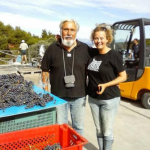April the 27th, 2023 – The power of the Croatian Immunological Institute, which many have referred to over recent years, is set to make a comeback thanks to investments being made in Rugvica.
As Marija Crnjak/Poslovni Dnevnik writes, during the middle of next year, the snake bite antidotes produced in the new Croatian Immunological Institute’s plant, which recently started being designed, should hit the market.
Preparatory work and the creation of a technological study for the construction of a new plant for the production of blood plasma and vaccines are now underway, for which a public tender is expected in two years. This project is no longer a precarious one and is now financially in an unquestionable state, because there is a market that is chomping at the bit to welcome vaccines with some of the parent strains that Croatia has. On top of that, the returns on investments will likely be relatively quick.
All of this more than encouraging information can be the basis for the further development of the Croatian Immunological Institute, which, later down the line, can also produce vaccines based on mRNA technology without much of an issue. This is how we can summarise the plan that, after many years of back and forth and beating around the bush by the government and administration, was finally devised in order to sustainably give the old Croatian Immunological Institute a new perspective and financial profitability. The realisation of the first steps in the construction of the new plant in Rugvica have now officially begun.
The best solution
As is already fairly well known, in June 2022, the municipal council of Rugvica made a decision to donate almost 70 thousand square metres of land to the Croatian Immunological Institute, for the purpose of building an entire plant dedicated to the production of biological drugs. They are also building a separate plant for the production of antitoxin against snake bites inflicted by venomous European snakes, and a biopharmaceutical facilities for the production of animal immunosera intended for both human and veterinary use.
This decision was preceded by a statement from the State Attorney’s Office of the Republic of Croatia and the Ministry of Economy and Sustainable Development, as well as the Ministry of Spatial Planning, Construction and State Property, all of which determined that there are no legal obstacles to such a transaction. Rugvica turned out to be the best solution because the process of establishing property legal relations over in Brezje, where horses are still located for the production of antitoxin from snake venom, is still ongoing.
As announced by the Ministry of Health on this occasion, the construction of the entire plant was supposed to start in two years at the latest, while the construction time to the functionality phase is expected to be nine months from the positive end of the public tender, i.e. the selection of the contractor according to the conducted tender.
The construction method of the production facility itself will involve prefabricated modular segments of clean rooms designed and built outside the facility and connected and formed inside the facility, which is something that needs to be preceded by a series of preliminary works, from obtaining all of the necessary permits, the evaluation of the conceptual design and final development of the main project to defining the details of financing modalities. In the zero phase, therefore, the plant for the production of antivenom is being worked on, on a plot of land spanning 69,000 square metres.
After a tender was successfully held back in January for the suppliers of the assembly facility where the Croatian Immunological Institute will move the production of snake antivenom in Rugvica, the government gave the green light to the Ministry of Health and the Institute of Immunology to sign contracts with suppliers in mid-March. This is an important step in the first phase of moving the Croatian Immunological Institute to a location in which, in the future, the plan is to build a plant for procedures involving blood plasma, and in the third phase, possibly also vaccines.
As Marija Bubas, the State Secretary of the Ministry of Health stated back on February the 15th, the Administrative Council of the Croatian Immunological Institute came to a decision on giving consent to the director of the Institute to enter into a contract for the delivery of a prefabricated building and to create project-technical documentation and obtain the necessary permits.
The contract was then concluded with a selected community of bidders in the total amount of three million euros including VAT, and it regards documentation for the construction of a biopharmaceutical plant for the production of antivenom for the bites of European snakes. The funds for the payment of obligations are being provided from the state budget for 2023 and 2024.
The group of bidders consists of the companies Naya Life Sciences Slovenia and Skopje, the Finnish company Elomatic Consulting and Engineering, and the Turkish Poli Panel Group. At the same time, all of the preparatory work and the technological study are ongoing, which will be the basis for the tender for the construction of the new plant, and it will be ready for the launch of a public tender in around two years. During that period, some of the people will work in the antivenom plant, and some will remain in the old premises in Rockefellerova in the heart of Zagreb, in buildings that are owned by the state.
Namely, back in 2015, with the aim of solving the Croatian Immunological Institute’s problems, the state separated the facility’s operations into an institution of the the employees and then the business processes and the Croatian Immunological Institute itself, which took over the assets and debts.
Fortunately for the owner, the property is worth more than the amount of debts that have accumulated, so there should be no problem solving those issues. Although the plan is to eventually transfer everything to the Croatian Immunological Institute, for now the status quo will remain the same, because some of employees will not be able to move to Rugvica for some time.
”In Zagreb, an educational centre for exercises and the transfer of knowledge of the production of vaccines could be launched soon, given that knowledge is key in this business,” Vedran Cardzic, the director of the Croatian Immunological Institute, explained.
The beginning of the antivenom production process is still located in Brezje, where the Croatian Immunological Institute has raw materials at hand, namely horses and snakes, and the construction of a biological laboratory according to GMP norms is also being planned there. Here in Zagreb, on the other hand, the reconstruction of the quality control laboratory is currently underway, where they have implemented the latest technology according to GMP norms for controlling the finished product in sterile conditions. This will all be portable and will be moved to the new space in Rugvica when it is built, and the third phase is the actual moving process itself.
The financial structure will be combined, and it’s very likely that it will also include funds from both Croatian and EU funds, and by the middle of the year, all concrete plans on the basis of which funding can be requested may be ready. The construction of the antivenom plant will be financed from the Croatian Immunological Institute’s own income from blood plasma products, in the total amount of about five million euros. It’s interesting to note that the investments in the antidote plant, and one day the hefty investments in the vaccine factory, can be paid back in a maximum of four years.
What the Institute could produce as soon as tomorrow, if only there were space, are vaccines against measles and rubella.
“The market we’d be entering is that of the whole of South and Southeast Asia and some other underdeveloped countries in Africa. It can be done through UNICEF, where the prices are slightly lower, and it can also be done with strategic partners. We’ve come a long way with discussions with potential strategic partners over in India and other countries that lack raw materials.
We have an advantage here because we have the parent strains that remain owned by the Republic of Croatia and that is the base from which these vaccines are made. We will be in demand there, because we have good products that they need. We aren’t interesting for Europe because there are multivalent vaccines on the European market already which work against several different diseases,” explained Cardzic.
The Croatian Immunological Institute will be able to produce about 250 million doses of such vaccines, and it can easily be calculated that it is financially profitable.
“This is the basis for us to develop further and produce more mRNA vaccines based on the technology that, once adopted, you can produce vaccines for any pathogen. This is a good path for the Institute, which will return it back to its old glory with a lot of work, after a decade of presence on the market, acquiring young forces that should be given the freedom to work and be creative with it,” concluded Cardzic.
For more, check out our business section.









